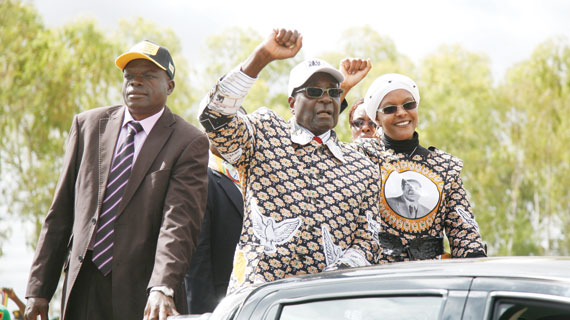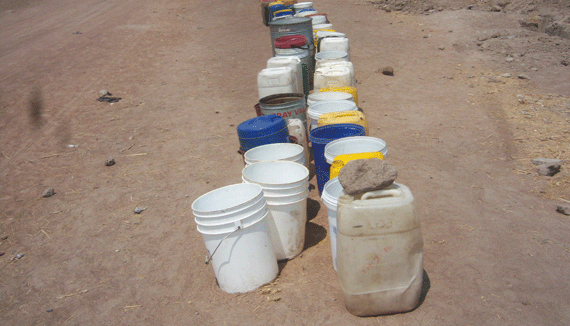
FIRST Lady Grace Mugabe last week described Prime Minister Morgan Tsvangirai as ugly, the earliest indication that the election campaign season was unpleasant, as political parties trade insults rather than proffer policies ahead of the polls.
NQOBANI NDLOVU
Following the launch of election manifestos, tensions have been increasing in Zimbabwe ahead of the harmonised elections, with insults dominating the electioneering.
Grace said Tsvangirai was so ugly that her husband, “came trembling and I asked him what the problem was to which he (Mugabe) said he had never seen someone that ugly before”.
Not to be outdone, Tsvangirai responded by calling Grace an adulterer and marriage wrecker for dating the President when his wife, Sally, was bedridden.
Tsvangirai has also said Mugabe’s age, 89 years, was a liability to Zimbabwe “and we cannot trust a 90-year-old to run this country for another five years,” indicating that he should rest.
MDC leader Welshman Ncube was not outdone as he described Mugabe and Tsvangirai as a bigger and smaller devil, respectively.
Analysts said the insults only served to polarise Zimbabweans and could trigger violent attacks from offended party supporters.
- Chamisa under fire over US$120K donation
- Mavhunga puts DeMbare into Chibuku quarterfinals
- Pension funds bet on Cabora Bassa oilfields
- Councils defy govt fire tender directive
Keep Reading
“Leaders should desist from issuing defamatory and derogatory statements about their opponents, as that could trigger violence,” Useni Sibanda, the director of the Zimbabwe Centre for Faith and Public Policy, said.
He said political party leaders should focus their energies on explaining how they would improve the lives of long-suffering Zimbabweans.
“They should not focus on personalities, they have to look at the bigger picture because Zimbabweans are not gullible as to be swayed by personal insults,” Sibanda said.
“Zimbabweans want to know what is in store for them, how their lives will be improved and so forth,” he added.
Francis Rwodzi, the director of Youth Agenda Trust Zimbabwe, an independent civic group, weighed in saying insults were a manifestation of the polarisation of Zimbabwe since 1980.
“What we are seeing during the campaign trail is a manifestation of the Zanu PF polarisation agenda since 1980,” he said.
“As soon as they got into power in 1980, they embarked on a ruthless agenda of dividing the people through tribal lines as part of their polarisation agenda and that led to the Gukurahundi massacres.” Rwodzi blamed Zanu PF for introducing a culture of polarisation in the country to maintain a stranglehold on power.
“Zimbabwe is a polarised society, polarised by Zanu PF that has been thriving on that,” he said. “The sad part is other political parties are failing to read that Zanu PF has nothing to offer and is resorting to its polarisation agenda.”
With tensions rising in the country, already pockets of violence and intimidation are being reported across the country, with MDC-T spokesperson Douglas Mwonzora saying the international community should keep an eye on Mugabe to stop the violence.
Police have said they will maintain a heavy presence to prevent violence, but analysts accuse police of formenting violence by being partisan towards Zanu PF.










